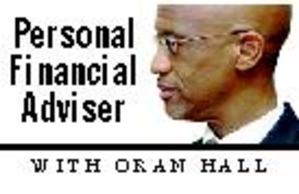
I spent my entire day listening to BBC Radio, staring at JSE Index and reading financial news. However, I lack the full understanding of stocks, bonds and some financial terms. I am especially interested in this because I want to choose the right investment option for me.
1) These two terms on the JSE graph 'volume traded" and 'value' are difficult for me to understand. Please clarify.
2) In The Gleaner, I saw Jamaican bonds being advertised. The terms 'coupon' and 'yield' are difficult to understand. Differentiate please.
3) On the JSE Stocks, I have difficulty understanding the terms 'last sale' and 'closing bid'. Which will be my purchasing price?
Thank you for your help.
- Allison
PFA: Stock, also called ordinary shares, represent ownership in a corporation, that is, a company whose owners have limited liability. These equity securities give their holders a claim to the company's earnings and assets.
Bonds are debt securities issued by corporations and are secured by specific assets of the borrower, who promises to pay to the holder of its bonds a specified amount of interest for a specified length of time and to repay the loan at maturity.
understanding bonds
Bonds are issued in several denominations - for example, $1,000, $10,000, $100,000, and so on.
Governments issue similar securities, which are called debentures because they are not secured. Corporations also issue debentures.
Bondholders are first in line before shareholders to claim on a company's assets in the event of liquidation.
On the stock market, 'volume traded' is the number of stock units or shares bought and sold on the exchange on a particular day. It is calculated for individual stocks and for the market overall.
Value is arrived at by multiplying the volume of stocks that trade at each price that a transaction is completed and then adding all of those values.
what is a coupon?
The term coupon is used in reference to interest-bearing securities such as bonds and debentures. It is the stated rate of interest on the certificate and is expressed as a percentage of the principal or face amount. The coupon rate of, for example, a Government of Jamaica 12 per cent Land Bond December 1, 2020 would be 12 per cent.
Yield refers to the income return to the holder of a stock or interest-bearing securities, which pay dividends and interest respectively. It is expressed on an annual basis as a percentage of cost or current market price.
There are several ways to determine yield. Current yield, also called running yield, is interest earned but expressed as a percentage of the security's market price.
Annual percentage yield is the effective annual rate of return, taking into consideration the effect of compounding interest and assuming funds remain invested for the full year. It standardises various interest rate agreements into a single annual percentage number and is a good measure for making comparisons of yields.
Yield to maturity, sometimes called redemption yield, is the estimate of what the investor return is expected to be if the bond is held to maturity at the current rate of interest. It is determined by the purchase price, the price at maturity, the coupon and time to maturity.
When a bond is purchased at a discount or below par, the yield to maturity is greater than the coupon rate because it generates a capital gain when it matures. The opposite happens if the bond is purchased at a premium, that is, above face value.
The last sale refers to the price the stock traded at the last time it traded. Whereas this may have happened on the most recent trading day, it may also have happened many weeks or months before that. You will not necessarily be able to purchase it at that price.
The closing bid indicates the price at which at least one buyer showed an interest in buying the stock up to the point when trading closed on the last trading day. This does not necessarily mean that it will trade at that price at the next trading session.
get guidance from a broker
It is best to get guidance from your dealer or broker about what price to buy stock at if you do not feel competent to make your own decision.
Buy at a realistic price, including a price at which it may not have traded previously. You will want to buy a stock that promises a good total return - dividends plus capital appreciation. Your expectations may not always be realised.
Consider expected total return - interest plus capital appreciation - when buying bonds and ensure the yield is in line with bonds of similar quality and term to maturity.
Keep educating yourself on investment matters.
For free counselling and advice, email: finviser.jm@yahoo.com